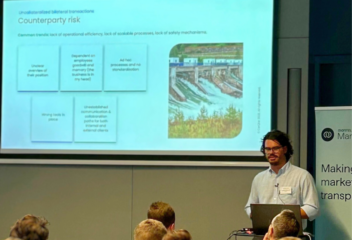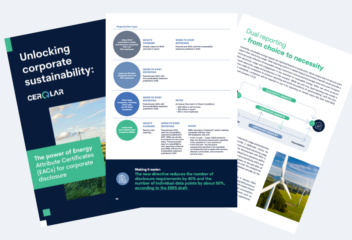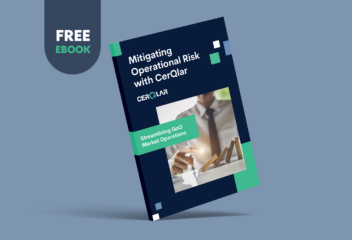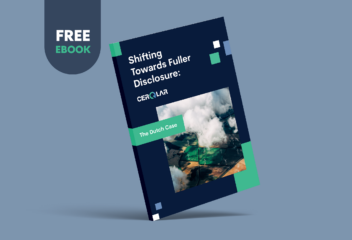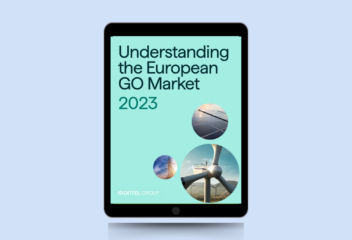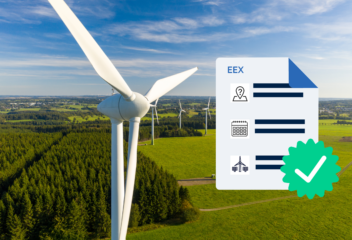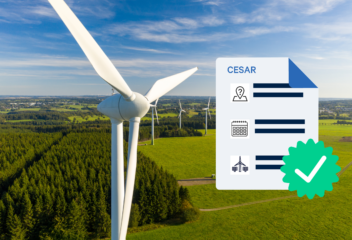Granular certificates: A game changer in the renewable energy market?
Granular certificates, also known as sub-certificates, are ushering in a new era for the renewable energy market. These certificates provide a more detailed and precise breakdown of the generation of renewable energy than traditional certificates, enabling better tracking and monitoring of renewable energy sources. They represent a shift towards greater transparency and accuracy in the reporting of renewable energy generation.

In this post, we will delve into the concept of granular certificates and discuss the benefits and challenges of using them. We’ll also explore how CerQlar’s platform can help energy producers and buyers manage the shifting market and changing demands more effectively.
What are granular certificates?
Granular certificates are a recent innovation in the renewable energy industry. They represent a more detailed form of energy attribute certificates that provide information on the exact location, time, and source of renewable energy generation. Unlike traditional certificates, which cover more general information on the producer and renewable energy, granular certificates offer information on individual renewable energy facilities, allowing for more specific tracking and reporting.

Learn how CerQlar helps you make informed decisions with one unified view of your inventory here.
Book a discovery callThese certificates aim to provide more information about where, when, and how renewable energy is generated, which can help increase trust and confidence in the energy attribute market. With granular certificates, energy producers can offer more detailed information on the specific location, type, and time of renewable energy generation, while energy buyers can have greater certainty that the energy they purchase is coming from a truly renewable source. Granular certificates have the potential to revolutionize the energy attribute market, but there are still several challenges that may hinder their widespread adoption.
The benefits of granular certificates
Despite these potential setbacks, granular certificates bring a variety of benefits to both renewable energy producers and buyers, including:
- Increased Transparency: Granular certificates provide more detailed information about renewable energy generation, such as the details of the source and location of the energy production. This increased transparency can help build trust and confidence in the energy attribute market and improve reporting accuracy.
- Accurate Tracking: With granular certificates, renewable energy producers can track the energy generated by individual facilities, making it easier to report on specific types of renewable energy generation. Buyers can also verify the origin of the energy they purchase, giving them greater confidence that it meets their sustainability goals.
- Premium Pricing: Granular certificates can allow renewable energy producers to demand higher prices for their power. Buyers are willing to pay a premium for renewable energy with verified attributes, such as those guaranteed by granular certificates. This can lead to increased revenue for renewable energy producers, encouraging further investment in renewable energy facilities.
The challenges of granular certificates
While granular certificates have a lot to offer the renewable energy market, several factors could impact their adoption and implementation. These include:
- Standardized reporting: Granular certificates provide detailed information on individual renewable energy facilities, which means that reporting requirements will need to be standardized to ensure consistency and accuracy. This could prove challenging for energy producers and buyers who are not used to collecting and reporting data at this level of granularity.
- Administrative costs: In order to collect and analyze the data needed for granular certificates, energy producers and buyers may need to invest in additional resources and technology. This could lead to increased administrative costs, which could be a barrier to adoption for some market participants.
- Complexity: Granular certificates add a new layer of complexity to the energy attribute market. This could make it more difficult for small-scale producers to participate, as they may not have the resources or expertise to manage the additional reporting requirements.
- Market fragmentation: Granular certificates could lead to market fragmentation, as buyers may prefer to purchase energy from specific facilities or regions. This could create challenges for energy producers who operate across multiple locations and may need to manage multiple certificates.
The future of granular certificates
Overall, while granular certificates offer many potential benefits, their adoption may require significant changes to the way the energy attribute market operates. Energy producers and buyers will need to carefully consider the costs and benefits of adopting granular certificates and may need to work together to develop standardized reporting and verification processes.
The adoption of granular certificates in the energy attribute market (EAC) depends on the willingness of energy producers and buyers to invest in more detailed tracking and reporting. The challenges associated with granular certificates, such as standardized reporting, complexity, and higher administrative costs, may hinder their adoption, although some experts predict the market will be ready for granular certificates in the next few years.
CerQlar’s platform offers tools to address challenges associated with granular certificates, such as a user-friendly interface for tracking and viewing your certificates across registries to reduce administrative burden, and a position view where you can make informed decisions about your portfolio using filters and aggregations.
By facilitating efficient transactions and improving access to granular certificates, CerQlar is helping to drive the adoption of this new form of energy attribute certificates and promote sustainability in the energy industry.
Supporting the adoption of granular certificates
Granular certificates have the potential to revolutionize the energy attribute market by providing more detailed information on renewable energy generation. But their benefits don’t negate the challenges that stand in the way of their widespread adoption. True implementation of granular certificates requires standardized reporting and other significant changes to the EAC systems to accommodate challenges such as growing administrative costs.
CerQlar helps make the widespread adoption of granular certificates possible by providing features that help producers and buyers effectively manage granular certificate trading. With the right tools and resources, granular certificates could help accelerate the transition to a more lucrative, sustainable, and advanced renewable energy market.



